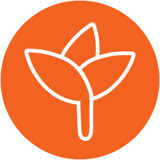Ending Family Violence is a 10-year plan that began in 2017. Ending Family Violence sets out the goals we want to achieve. We use rolling action plans to outline the practical steps needed to meet these goals.
Rolling action plans let us create a strong foundation and then build on it based on new knowledge and evidence. We have already released 2 action plans to date.
The first action plan
In the first 3 years of the Ending Family Violence Plan (2017 to 2020), we focused on getting the foundations in place. Some of the highlights of this work are outlined in Table 3.
In the first 3 years of the Ending Family Violence Plan (2017 to 2020), we focused on getting the foundations in place. Some of the highlights of this work are outlined in Table 3.
Table 3: Highlights of the first action plan Highlight Description Dhelk Dja: Safe Our Way – Strong Culture, Strong Peoples, Strong Families (Dhelk Dja) To address family violence experienced by Aboriginal Victorians, we entered into the Dhelk Dja Agreement in 2018.
Dhelk Dja is an Aboriginal-led agreement between:
- Aboriginal communities
- Aboriginal services
- government.
Dhelk Dja builds on over 20 years of Aboriginal-led work to prevent and respond to family violence.
Prevention To prevent violence before it starts, we established Respect Victoria.
Respect Victoria is the only statutory agency in Australia dedicated to preventing family violence and violence against women.
We also introduced the Respectful Relationships initiative in schools. Respectful Relationships promotes safe and healthy relationships to children and young people.
Family violence multi-agency risk assessment and management framework (MARAM) and the Family Violence Information Sharing Scheme (FVISS) To intervene as early as possible, we trained frontline workers across many sectors to identify and share information about the risk of family violence.
To do so, we created MARAM and FVISS. These groundbreaking tools now inform work across the country.
Centre of Learning for Family Violence To respond effectively in moments of crisis, we set up Victoria Police Academy’s Centre of Learning for Family Violence. Through the Centre, thousands of police have been trained on best practice responses to family violence reports. The Orange Door To make it easier for victim survivors to get the support they need, we created The Orange Door.
The Orange Door is a free and visible, area-based service for people:
- experiencing family violence
- who need help with the care and wellbeing of children and young people.
Case management support and new therapeutic services for victim survivors We expanded case management support and created new therapeutic services for victim survivors.
We dedicated 40% of the funding for therapeutic interventions to children and young people.
We set up new ‘core and cluster’ refuges. These give women and children:
- independent unit accommodation
- access to the immediate services they need.
Sexual Assault Crisis Line upgrade To improve services for victim survivors of sexual assault, we upgraded the statewide Sexual Assault Crisis Line, which included an online chat option.
The crisis line is run by Sexual Assault Services Victoria.
Adolescent Family Violence in the Home program expansion To intervene with young people using violence, we expanded the Adolescent Family Violence in the Home program across the state.
The program offers an early intervention model of care for young people aged 12 to 17 years who use violence.
Central Information Point To hold adults who use violence to account and keep them visible, we created the Central Information Point.
The Central Information Point creates a single report about a perpetrator of family violence from information held by:
- police
- courts
- corrections
- Child Protection.
Access to behaviour change programs We increased access to men’s behaviour change programs and individual case management placements in Community Correctional Services. Specialist family violence courts (SFVCs) We designed and put in place a new model of SFVCs to:
- support the safety of victim survivors
- keep adults who use violence accountable.
Specialist family violence services skills development We helped specialist family violence services develop the skills they need for this complex work.
We did this to recognise, support and increase the number of people working to prevent and respond to family violence across Victoria.
From 2020 to 2023, we built on the strong foundations from the first action plan.
Some of the highlights of this work are outlined in Table 4.
Table 4: Highlights of the second action plan Highlight Description Orange Door network We finished setting up the statewide Orange Door network. The network now has 18 primary sites and another 19 access points. It also has outposts in 27 community services.
We also created the first Aboriginal-led access point, in line with our commitment to self-determination.
In 2024, The Orange Door received 192,469 referrals.
Increased focus on people who use violence We increased our focus on people who use violence. This included establishing the Place for Change program.
This program that works with men who have used violence to help them:
- change their behaviour
- engage with support services
- access secure accommodation services, which helps women and children stay safe at home.
More specialist family violence workers We increased the number of specialist family violence workers to 2,500. MARAM training and prevention initiatives To the end of 2024, we ran over 332,000 sessions of MARAM or MARAM-aligned training.
This training gives workers the critical skills they need to:
- recognise the risks of family violence
- take decisive action to intervene and protect people from harm.
Increased understanding of responsibility to prevent violence We engaged Victorians in preventing family violence through over 250 initiatives in the places where they live, work, learn and play.
More organisations, institutions and workplaces understand their responsibility to help prevent family violence.
Community members are less likely to minimise, justify or condone family or sexual violence.
Key reform achievements

Since 2021–22
Over 180,000 people have participated in primary prevention programs.

Since 2019–20
14 specialist family violence courts (SFVCs) gazetted by the Victorian Government - final in Wyndham 2025.

Since 2018–19
19 Aboriginal community-controlled organisations (ACCOs) were funded to offer family violence and sexual assault services, including:
- Aboriginal-designed sexual assault services
- healing programs
- responses for people using violence.

Since 2018
The Orange Door has responded to over 590,000 people, 40% were children and young people.

Since 2017–18
Over 45,000 people engaged with DFFH-funded interventions for people who use violence.

Since 2017–18
Over 25,000 children and young people took part in family violence therapeutic interventions.

Since 2017
Over 2,000 Victorian schools took part in the Respectful Relationships program.
In the first 6 years of Ending Family Violence, we:
- carried out all of the Royal Commission’s recommendations
- made big changes to the way we prevent and respond to family and sexual violence.
Our progress is highlighted in Strong foundations: Building on Victoria’s work to end family violence (Strong Foundations).
Strong Foundations was released in December 2023.
Strong Foundations reminds us that major change needs hard work and long-term commitment at the individual, community and system levels.
In Strong Foundations we set out our 5 priority areas for the next 3 years. These are to:
- drive down family and sexual violence
- focus on children and young people
- strengthen support for victim survivors
- respond to change
- understand and demonstrate our impact.
During consultations for this plan, we received valuable feedback on the 5 priorities from:
- victim survivors
- community groups
- specialist support services
- organisations working to prevent and respond to family and sexual violence.
Consultation was also open to the public. Everyone was invited to share their views, including through:
- an online survey
- a call for written submissions
- targeted workshops and roundtables.
In our consultations, we heard that the priorities set out in Strong Foundations were on target. We learned that there needed to be a greater focus on:
- people with diverse needs and identities in our community
- enabling self-determined responses by Aboriginal communities
- making sure Aboriginal people receive culturally safe services
- services that are safe, inclusive and accessible for people who use them
- working with people in a more holistic way, considering their family context and the needs of all affected family members, including the specific circumstances of children and older people experiencing family violence
- the accountability of adults who use violence, including for those who use coercive control (behaviour intended to make a person feel fearful, dependent and powerless)
In May 2024, the Victorian Government announced a significant boost in its work to prevent violence against women.
The Strengthening Women’s Safety Package:
- increased crisis and therapeutic services for victim survivors
- increased case management of high-risk perpetrators
- funded innovative programs to prevent violence against women.
The package moved beyond our ambitious agenda to put in place all 227 recommendations of the Royal Commission. It has continued to drive action at every stage:
- better responding to victims when violence occurs
- creating a stronger justice response that holds offenders to account
- continuing Victoria’s world-leading prevention response – stopping violence before it starts.
We are determined to continue to innovate and offer support for victim survivors when they need it. We know the safety of women and children is counting on it.
Initiatives under the Strengthening Women’s Safety Package have been included in this plan. One such initiative is the nation-leading Respect Ballarat: A community model to prevent gendered violence, being trialled in Ballarat by Respect Victoria.
Following a devastating period of violence against women in 2024, the Ballarat community came together to demand and create change.
We know community attitudes and beliefs reinforce behaviours which can contribute to family violence.
Alongside the community, and with a co-design process we are putting in place a model to address and prevent gendered violence - everywhere that people in Ballarat live, learn, work and play.
Updated
